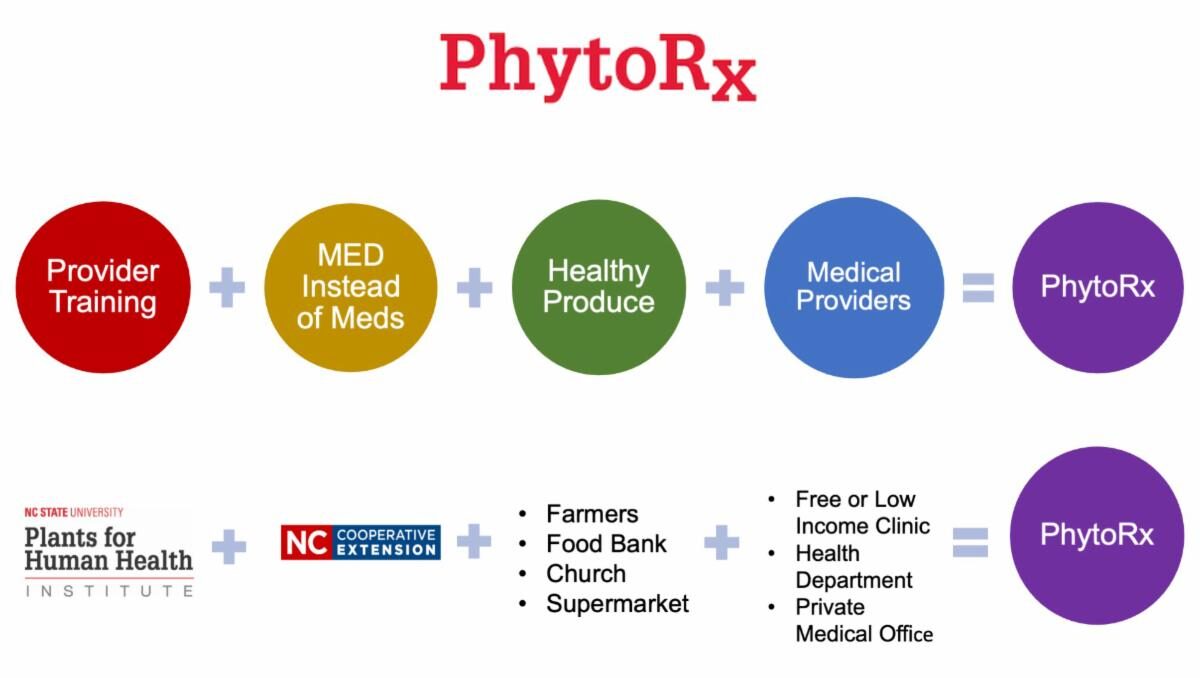PhytoRx Wrap-up

Fifteen patients completed an 8-week iteration of the PhytoRx program in Iredell County last month. The patients tried new foods, new food preparation methods and they drank more water. The PhytoRx program is built around partnerships among multiple community stakeholders who are positioned to be part of a comprehensive approach to healthcare. Here’s how it worked in Iredell County, North Carolina.
Healthcare providers at HeathReach Community Clinic (Iredell County’s only free medical facility) were given a PhytoRx short course where they learned how to help patients choose foods that would have direct effects on their chronic conditions. The providers then gave prescriptions for specific fruit and vegetable groups (based on phytochemicals) that would augment their in-clinic treatment plan.
Patients took the prescription to PhytoRx partner, FeedNC (southern Iredell County’s food-centered education and grocery co-op) to “fill” the prescriptions with a variety of foods matching the phytochemicals indicated by the medical provider. The availability of specific produce items can vary from week to week at FeedNC, so their staff was educated on suitable substitutions that still fulfilled the phytochemcial recommendations (carotenoids, anthocyanins, or both) from the prescription.
Andrea Sherrill, RD, is the NC Cooperative Extension Family and Consumer Science Agent in Iredell County. She connected with PhytoRx participants to educate them on healthy eating through a Mediterranean style eating program. Even when a new dish wasn’t an immediate hit, she offered another preparation option and encouraged them to give the fruit or vegetable a second chance. She focused on making small shifts in food choices that collectively, overtime will have a big impact on health.
Participants watched videos, used new kitchen tools, and fixed recipes with foods they may not have seen before. The program finale offered participants a dinner made with recipes using concepts from the Mediterranean diet and a congratulatory grocery gift card for completion of the program. In eight weeks, these patients reported establishing new habits for better health and finding new foods that were not previously part of their diet; eight weeks earlier they had received not a prescription for medicine, but a prescription for health.
Are you interested in learning more about the PhytoRx program and how to incorporate it in your practice? Or learning how to build partnerships in your community? Let’s talk; tell me your interest and we’ll determine how we can work together.
This article was part of the January 2023 e-news FRESH Rx. Subscribe for similar content delivered to your inbox monthly.
- Categories: